News

U.S. Navy Conducts Temporary Cargo Transfer Initiative
The U.S. Navy will perform a transfer operation to move cargo between planes at Bandaranaike International Airport outside Colombo till January 29, the US embassy in Colombo said.
This is part of a larger temporary cargo transfer initiative that promotes Sri Lanka's efforts to become a regional hub for logistics and commerce. The January transfers will contribute approximately LKR 25 million to the country’s economy.
This is the third iteration of the temporary cargo transfer initiative. It follows two successful transfers that took place in August 2018 at Bandaranaike International Airport and Trincomalee and in December 2018 at Bandaranaike International Airport.
“Sri Lanka's leaders have outlined their vision for the country’s regional engagement that reflects its location at the nexus of the Indo-Pacific and seizes the opportunities that this unique position presents,” said U.S. Ambassador Alaina B. Teplitz.
“We are happy to support this vision through a range of mutually beneficial initiatives, such as contracting Sri Lankan services and goods to support U.S. military and commercial vessels that often transit the Indo-Pacific’s busy sea lanes.”
Under the initiative, several U.S. naval aircraft are scheduled to land and depart from the commercial airport, bringing in a variety of non-lethal supplies. The supplies will be transferred between planes and then flown to the U.S.S. John C. Stennis at sea. Supplies may include personal mail for sailors, paper goods, spare parts and tools, and other items. No cargo, military equipment, or personnel associated with this initiative will remain in Sri Lanka after the completion of the cargo transfer.
U.S.-Sri Lanka security cooperation encompasses a variety of joint exercises and training that has developed the skills and interoperability of both countries. This cooperation was designed by both countries to address our mutual security interests, such as humanitarian assistance and disaster relief and maritime domain awareness.
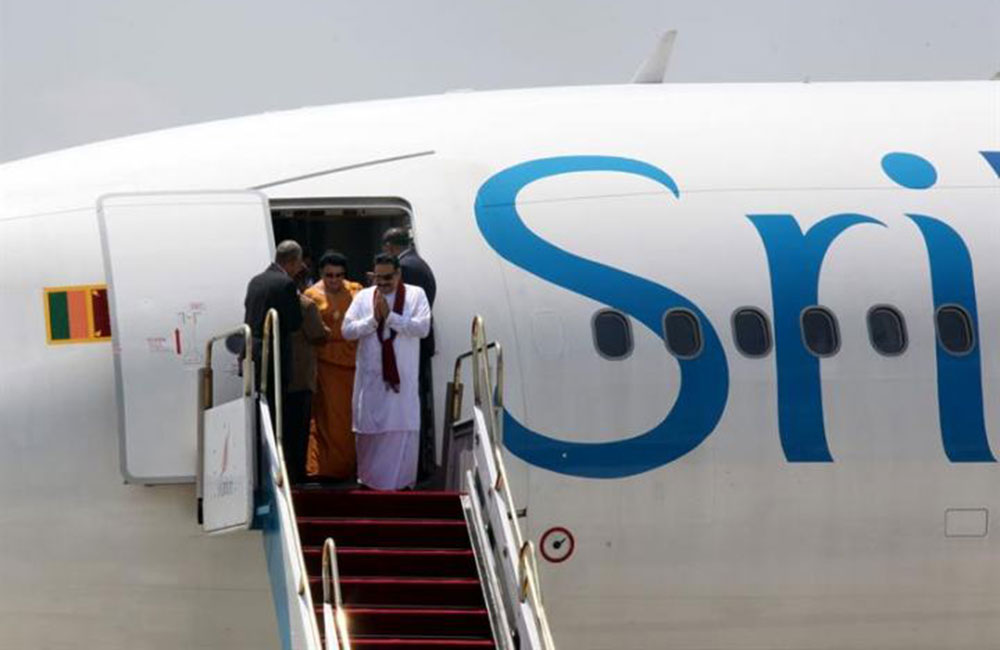
SriLankan owed over LKR 122 million for Rajapaksa flights
The Presidential Secretariat and the Ministry of Foreign Affairs has to pay Rs. 122.3 million to SriLankan Airlines for several flights chartered for former Head of State Mahinda Rajapaksa’s delegations, Presidential Commission of Inquiry (PCoI) on irregularities at SriLankan Airlines, SriLankan Catering and Mihin Lanka was informed yesterday.
According to Sumudu Priyanka Upatissa, the Manager of Revenue Management and Network Planning of SriLankan Airlines, it was revealed that the airline had attempted to secure these payments by writing to the Secretaries of these institutions.
He said most of these flights involved the then Head of State and he used to travel by the charter flights. In the normal process, he said they charge a 2 percent interest for the chartered flights, but they had never charged interest for this outstanding amount. “Rather they wanted to obtain the capital amount,” he added.
Rajapaksa's flights included trips to Johannesburg, Tel Aviv, Rome and Bolivia, where SriLankan had no regular flights. A chartered flight to Johannesburg in December 2013, carried only 26 passengers though it had seating facilities for 243 passengers. The Presidential Secretariat paid the airline Rs.36 million for the flight. The aircraft, A340, had 38 business class seats and 205 economy class seats.
Upatissa further said that for another chartered flight to Tel Aviv, Israel, in January 2014, the Presidential Secretariat had paid the airline Rs.46.3 million. Only 48 passengers had traveled in the flight, which could carry 312 passengers. The plane landed first in Amman, the capital of Jordan, where 42 passengers got off, while only six people flew to Tel Aviv.
The Presidential Secretariat had also refrained from paying Rs. 43.4 million for a chartered flight to Rome in October 2014. Only 69 passengers had traveled in that aircraft, which could carry 312 passengers.
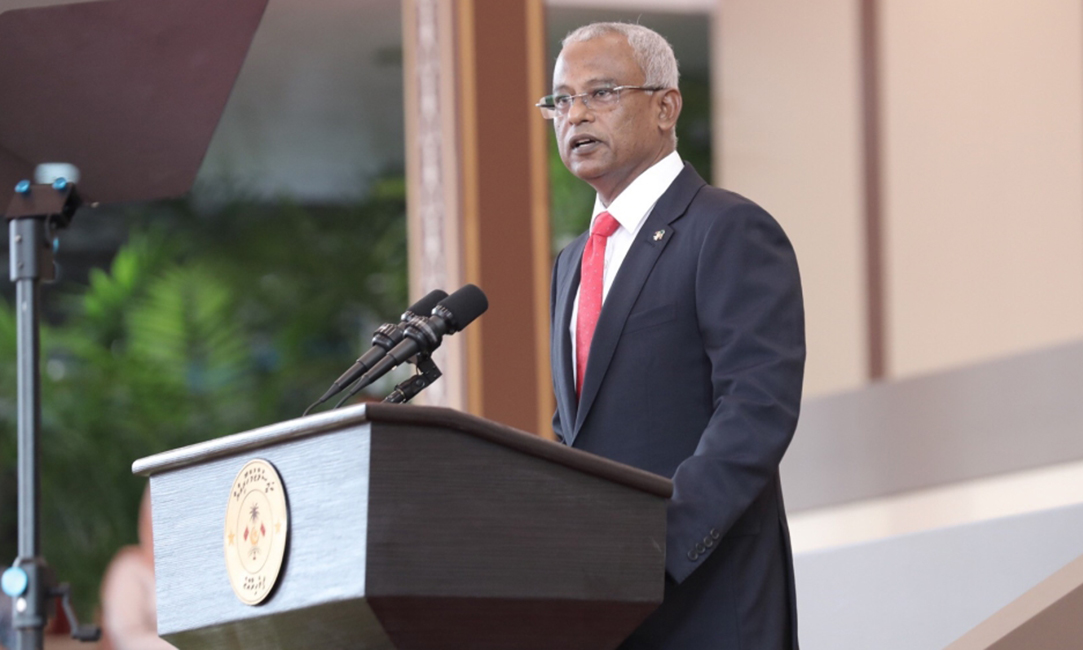
Maldivian President to attend Sri Lanka's independence day celebrations
Newly elected Maldivian President Ibrahim Mohamed Solih will be travelling to Sri Lanka to join the Independence Day celebrations, stated the President’s Office.
This is Solih’s first official trip to Sri Lanka since becoming President. However, he had made on an unofficial trip to the neighboring nation last December.
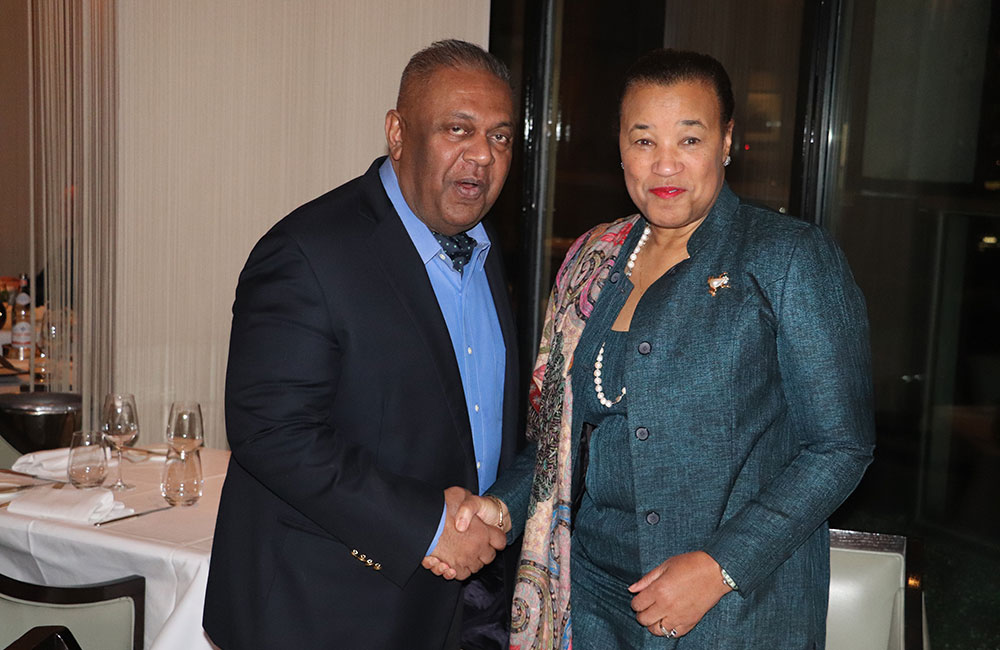
Mangala meets UK's Minister of State to discuss reconciliation
Finance and Media Minister Hon. Mangala Samaraweera called on the United Kingdom's Minister of State for the Commonwealth and United Nations, Lord Tariq Ahmad of Wimbledon, at his office in Westminster, London, yesterday (21), to discuss progress made in the areas of human rights and reconciliation and other matters of mutual interest.
Lord Ahmad is also Prime Minister Theresa May's Special Representative on Preventing Sexual Violence in Conflict, Freedom of Religion and Belief.
Samaraweera also called on the Secretary-General of the Commonwealth Patricia Scotland QC in London on Friday (18) for a cordial discussion. The Minister tweeted that they discussed matters of mutual interest.
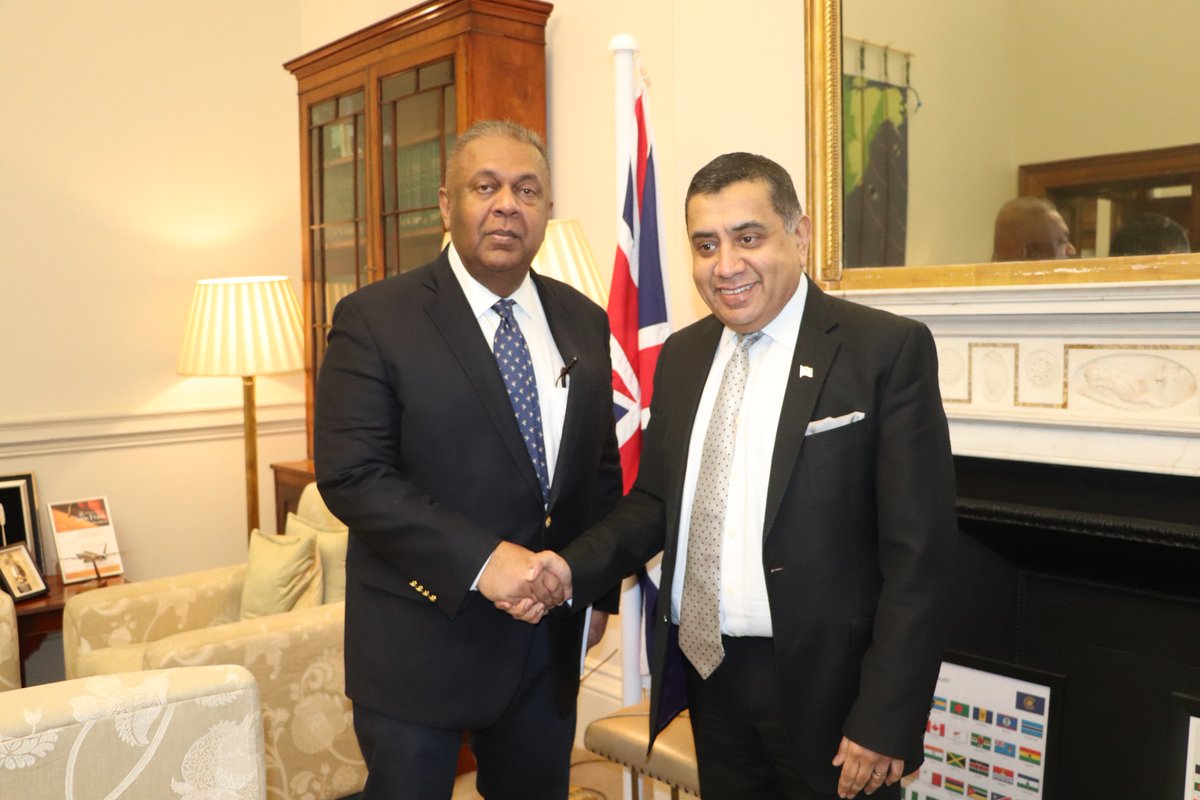
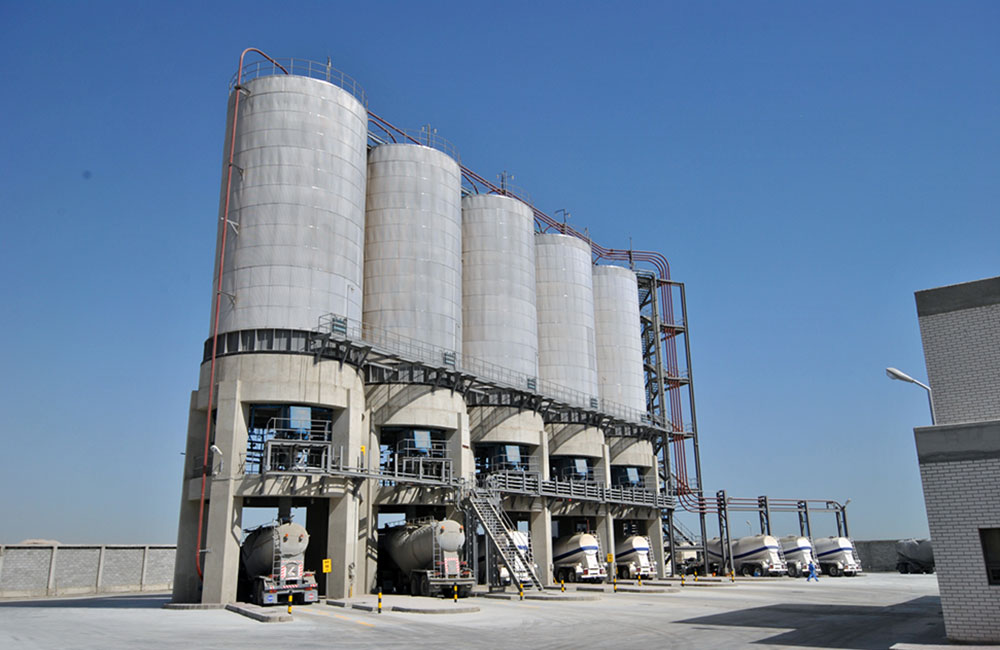
Chinese firm to set up cement plant in Hambantota
A Chinese firm is to set up a cement plant in Hambantota where Beijing already controls the strategic port, in an indication of China's increasing footprint in Sri Lanka.
Sri Lanka's Deputy Minister of Development Strategies and International Trade, Nalin Bandara, said the Chinese firm would set up its plant in the Hambantota Export Processing Zone, and added that this is the first time a Chinese cement company is entering the local market directly, Lanka Business Online reported.
"This Chinese company would mainly concentrate on the Sri Lankan market," Bandara said.
"Even though, we have many manufacturers, almost 55 percent of the local consumption is imported. Therefore, there is an opportunity for a new manufacturer to market cement locally."
He said that land allocation and environmental assessment for the cement plant have been completed, and the plant is expected to start production in May 2020.
The Chinese company is expected to source 40 percent of raw material locally and intends to increase it gradually.
Sri Lanka currently has several players active in the cement industry which caters to domestic demand. It also imports cement from various plants in neighboring countries.
Sri Lanka has leased Hambantota port to the state-run China Merchant Ports Holdings Ltd for a period of 99 years, a move that has caused concern in neighbouring India.
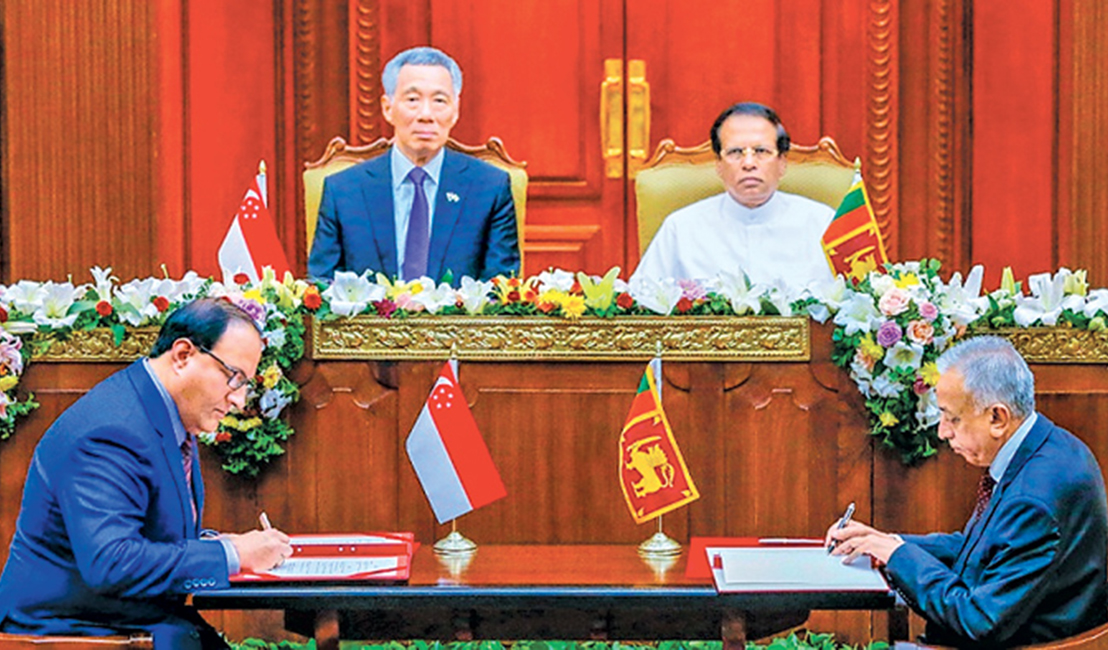
Government to defend Sri Lanka - Singapore Free Trade Agreement
The Government is getting ready to defend the Sri Lanka - Singapore Free Trade Agreement (SLSFTA) amidst severe pressure from president Maithripala Sirisena who is determined to suspend it.
The president has called for the suspension of the agreement pending its revision or abolition, following wide spread protests of professional associations, public interest groups and stake holders of international trade over the SLSFTA.
The five member Presidential Committee of Experts (CoE) has made adverse observations in its report on the SLSFTA that was released recently.
The Development Strategies and International Trade Ministry said that team of international trade experts is now scrutinizing the observations and recommendations contained in the report. The ministry will submit counter submissions with regard to the adverse observations contained in the report and it will be made public this week.
The CoE in its report noted that the entire negotiation process was carried out without any feasibility and cost-benefit studies of a trade agreement with Singapore from Sri Lanka's point of view.
The Committee observes that some serious lapses were allowed to occur, perhaps deliberately or inadvertently to expedite matters in the process of signing the SLSFTA by Minister Malik Samarawickrema.
The Minister had indeed acted without attending to the conditions laid down by the Cabinet of Ministers in its conditional approval granted to him.
These lapses relate to non-compliance with the “matters highlighted by the Attorney General” as clearly included in the Cabinet approval as a necessary condition to be fulfilled before signing ,the CoE emphasised while making several adverse revelations.
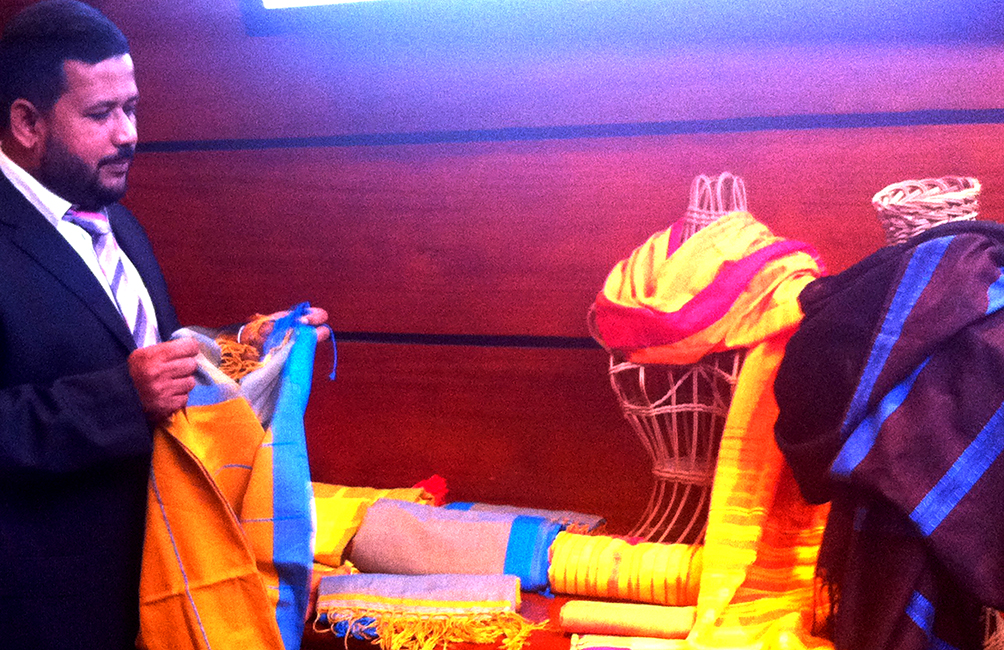
Sri Lanka handloom industry to go hi-tech
Sri Lanka’s textile and handloom sectors are in line for a major upgrade after many decades when a global technology platform used in complex patterns is presented to domestic craftsmen and designers this year.
"Modern techonology can greatly increase the productivity of our high quality handlooms” Minister of Industry and Commerce Rishad Bathiudeen said.
Minister Bathiudeen made these remarks while addressing a progress review of the institutions that fall under his purview on 17 January.
Jacquard machines are used by handloom designers to speed up their manual production looms’ speed. Jacquard machines give the strength of power-looms to hand-loom machines by speeding up complex handloom designs using a punch card system.
Sri Lankan handloom designers already use punch-card driven Jacquard machines for their production. However, these machines are not sufficient to meet the speed of today’s handloom market. The Textiles and Handlooms Development Division of the Ministry therefore will replace these punched card machines to digital, computerised Jacquards, said Minister Bathiudeen.
Accordingly, the Ministry plans to install the first high quality digital Jacquard system at the Sri Lanka Institute of Textile Technology, Ratmalana at an estimated cost of USD 20000.
This system will be used to demonstrate and train national level handloom producers as well as private sector suppliers who would be encouraged to import them on their own and competitively sell to local handloom producers. The Textile Department plans to import eight more digital Jacquards to be given to each province to train the Provincial producers and encourage provincial machinery importers.
Sri Lanka’s handloom sector is one of the low cost but high earning industries. The production is labour intensive and the industry consumes less electricity and utilities but generates higher employment. It is estimated that more than 12000 personnel are engaged in it with Wayamba, Western, and Central provinces accomodating the most handloom products.
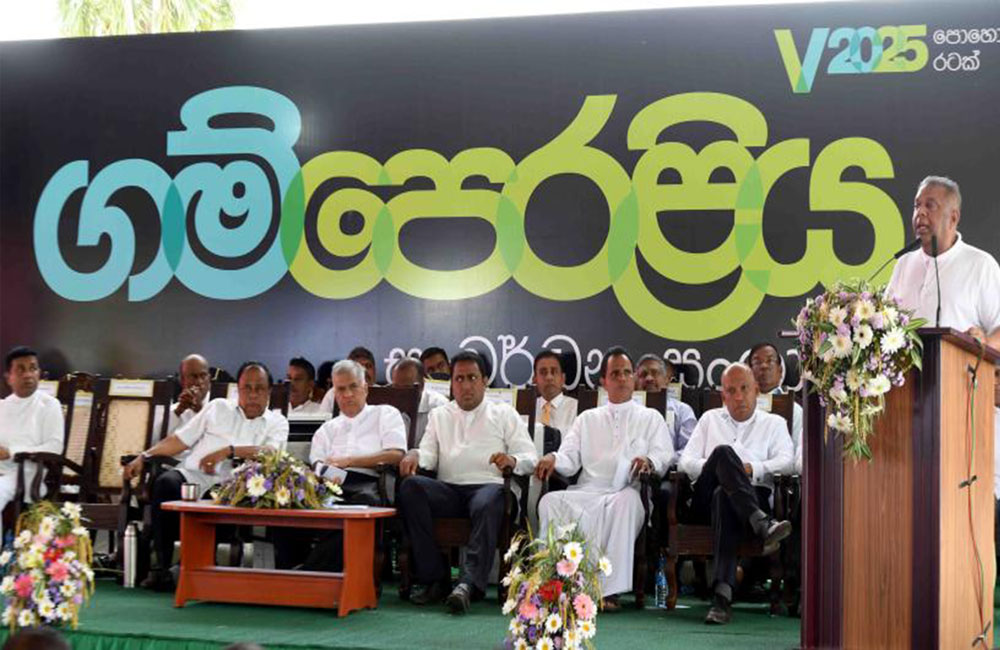
All 'Gamperaliya' projects to be completed by August 31
All development projects scheduled for this year under the Gamperaliya rapid rural development programme should be completed before August 31, the General Treasury has informed all District Secretaries.
Furthermore, Secretary to the Ministry of Finance and Media Dr.R.H.S. Samaratunge has instructed all the District Secretaries regarding the implementation of the Gamperaliya Programme. Under this programme, the General Treasury has allocated LKR 300 million for each electoral division totaling LKR 48 billion for 2019 for public welfare projects and public infrastructure development projects.
“The General Treasury has also informed that the payments for all the development projects implemented investing this money should be settled before the end of September this year,” the General Treasury said.
During the conspiratorial government that came into office on October 26th, the first cabinet paper that was submitted the then government was to abolish the Gamperaliya programme implemented by Finance Minister Mangala Samaraweera.
Samaraweera also said that he will allocate an additional LKR 100 million to each electorate with the total funding now coming to 300 million per electorate. The Gamperaliya programme will cover a dozen sectors including the irrigation renovation, road infrastructure development, construction of small bridges, playground development, drainage system development in the urban areas, weekly fair and children’s park development, drinking water projects, and power supply projects for poor families.
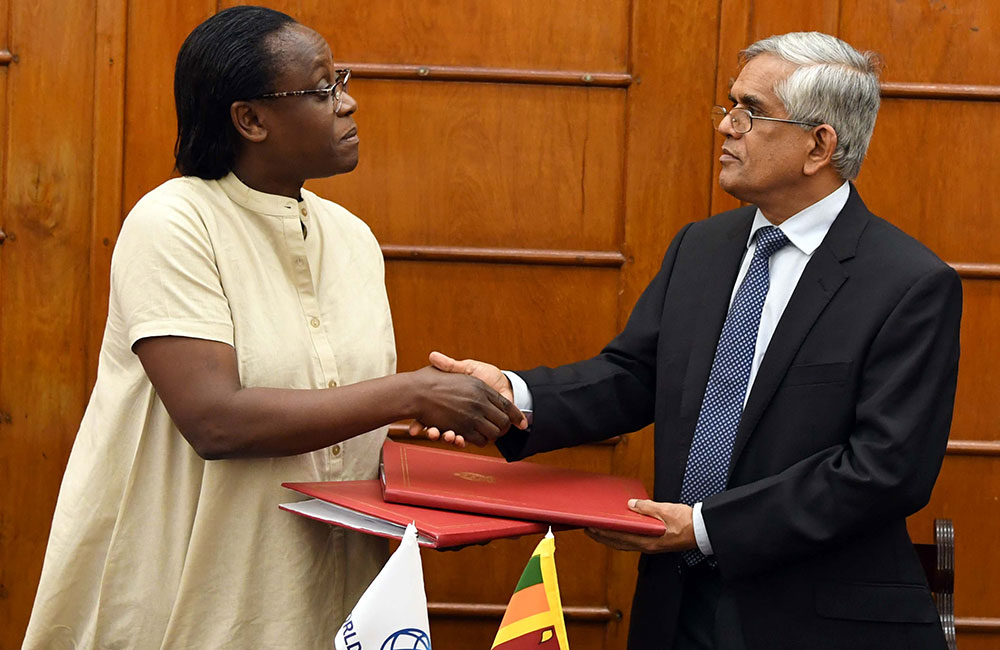
USD 200 million from World Bank to strengthen primary health care system
Sri Lanka is to obtain USD 200 million from the International Bank for Reconstruction and Development (IBRD) of the World Bank to implement the Primary Health Care System Strengthening Project
The development objective of the proposed project is “to increase the utilization and quality of primary health care services, with an emphasis on detection and management of non-communicable diseases in high-risk population groups, in selected areas of the country”.
This objective will be achieved by supporting the reorganization and strengthening of the Sri Lankan primary health care system. Specifically, the project will support the development and roll out of policies and standards and strengthening of various supportive systems. The project will lay the foundation for a more integrated, coordinated, and people-centered delivery system.
The primary beneficiaries of the project will be the users of public Primary Health Care (PHC) Institutions in the selected communities of the country. The primary users of the public PHC Institutions tend to be the poorer segments of the population. Within the communities supported by the project, those who are most at risk of having or developing a severe or catastrophic Non-communicable Disease (NCD) will be the primary target. Project interventions will benefit the health sector staff at the central and provincial levels by strengthening their capacities and making resources available to plan and execute the strategy for strengthening PHC services.
The project consists of the following components:
· Implementation of the PHC System Reorganization and Strengthening Strategies
· Project Implementation Support and Innovation Grants
· Contingent Emergency Response Component
A Project Steering Committee (PSC) will be established and co-chaired by the secretaries of the Ministry of Health, Nutrition and Indigenous Medicine and Ministry of Internal and Home Affairs and Provincial Councils and Local Governments. The additional members will consist of secretary to the Finance Commission, nine Provincial Chief Secretaries, and representatives from the central Ministry of Health, Nutrition and Indigenous Medicine and provincial Ministry of Health, Nutrition and Indigenous Medicine.
The financing agreement of the aforementioned project was signed by Dr. R H S Samaratunga, Secretary, Ministry of Finance and Mass Media on behalf of the Government of Sri Lanka and Ms. Idah Z Pswarayi – Riddihough, World Bank Country Director for Sri Lanka and Maldives on behalf of the World Bank on January 23, 2019 at the Ministry of Finance and Mass Media.

Parents of two young children who became infected with measles after a trip from Sri Lanka had refused to vaccinate them
The parents of two young children who became infected with measles during a trip to Sri Lanka earlier this month refused to vaccinate them, the Daily Mail reported.
The family returned to Australia this week, prompting urgent calls from health authorities for anyone who may have come into contact with them to be on the lookout for symptoms.
The family returned to Sydney from Sri Lanka on flight QF229 on January 11 via Singapore before catching the train from the airport to Meadowbank.
New South Wales Health was notified about the two children on Friday, bringing the total number of cases reported in Sydney in the last three weeks to eight.
World Health Organisation statistics reveal that about 110,000 children were killed by measles in 2017.
Australia has successfully eliminated live strains of the measles virus thanks to a thorough program of vaccinations, however, occasional cases do occur which are usually caught overseas.
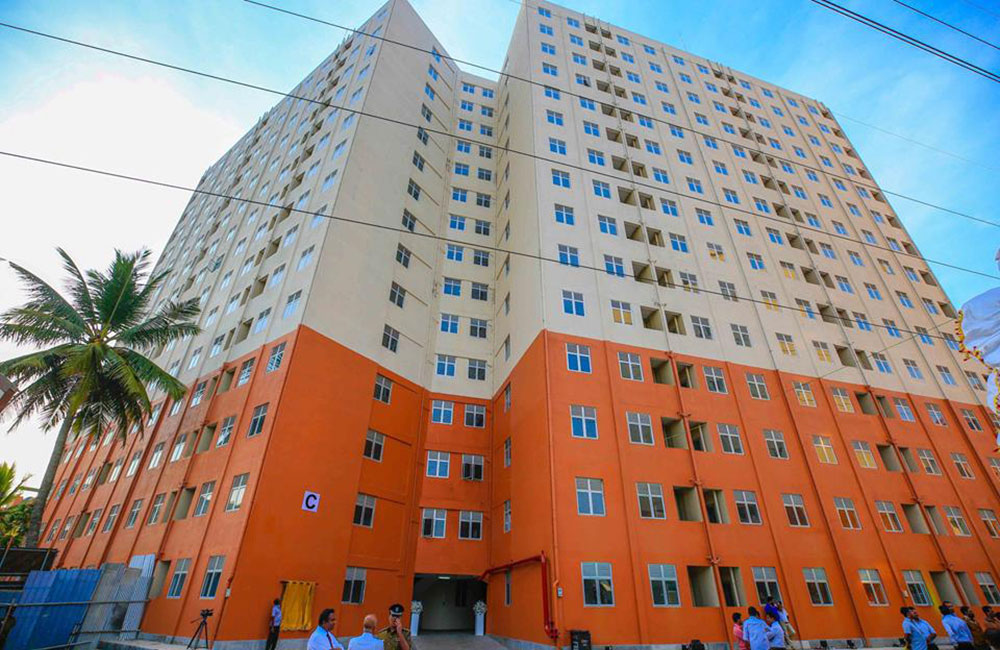
New Political Alliance in the offing - PM
Prime Minister of Sri Lanka, Ranil Wickramasinghe says a new political alliance will be formed soon. Named as the National Democratic Front (DNF) Wickramasinghe said it will most likely be formed in two weeks time.
“Other political parties can and are welcome to join this broader political alliance,” he said. The Prime Minister made this announcement at the ceremony held to handover 266 houses under the 2nd phase of the 'Siyapath Sevana' Housing Scheme in Dematagoda yesterday (22).
The PM also assured despite the false accusations by political opponents, he has no intention to divide this country. According to the PM, those threatened by the development projects being carried out by the government have now resorted to spreading false rumours to destabilize the government.
The Premier handed over 266 housing units to the recipients yesterday under the 2nd phase of Siyapath Sevana Housing project implemented at a cost of Rs. 1.064 billion. Earlier 437 housing units were handed over to low-income families under the first phase of this project.


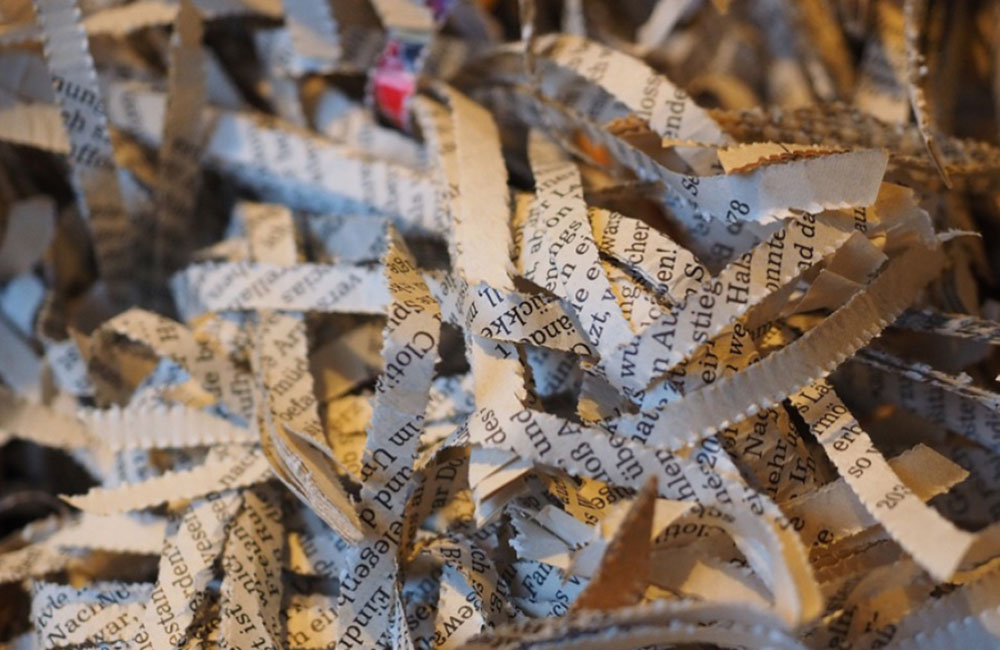
UK Foreign Office admits to destroying hundreds of files from the start of Tamil uprising in Sri Lanka
Britian's Foreign Office is being accused of “shredding history” after it admitted to destroying nearly 400 diplomatic files from the start of a Tamil uprising in Sri Lanka, the Mornig Star reported.
Margaret Thatcher’s government armed Sri Lankan forces against left-wing Tamil independence fighters, but activists including superstar M.I.A. are now warning the full extent of this deadly collusion may never come to light.
The Foreign Office has shredded nearly twice as many files on the conflict than it previously admitted, a freedom of information request by the Morning Star has found.
Last year the department said it had destroyed 195 files from the late 1970s, when MI5 and SAS personnel advised Sri Lankan spies and commandos how to counter Tamil guerillas.
The Star can now reveal that diplomats shredded another 177 files from the early 1980s, bringing the total to 372.
Only lists of file names survive, many of them relating to arms sales.
Last night the Campaign Against Arms Trade (CAAT) condemned the destruction, saying the Foreign Office “cannot be allowed to erase its complicity” in Sri Lanka’s war crimes.
CAAT spokesman Andrew Smith said: “The conflict in Sri Lanka had devastating consequences, and killed tens of thousands of people.
“Britain’s role in the war might be embarrassing for the government, but if there is to be justice and accountability it needs to be fully exposed and understood.”
As well as arming Sri Lanka’s right-wing president throughout the 1980s, Britain also advised the country’s top brass.
The Star can reveal that Sri Lanka’s defence secretary General Attygalle made a secret visit to Belfast in 1984, just weeks after his forces massacred Tamil civilians.
The general dined with the head of the Royal Ulster Constabulary and discussed counter-insurgency tactics used in the Troubles.
The full details of this covert liaison may never be known as the Foreign Office has shredded a file from that year titled “Sri Lanka interest [sic] in Northern Ireland as a military problem.”
All government departments are supposed to preserve historic files and make them available to the public at the National Archives after 30 years, but the Foreign Office has repeatedly destroyed documents before they are due to be declassified.
The Morning Star has found that the Sri Lanka records were destroyed in 2014, just weeks after the Foreign Office apologised to top historians for burning files about Britain’s abuse of Mau Mau anti-colonial activists in Kenya.
We can also reveal that diplomats have now drawn up secret plans to destroy a further 40 files on Sri Lanka dating from the mid-1980s.
These files contain details about political asylum applications, training of Sri Lankan forces in Britain and nine volumes on arms sales.
Dr Rachel Seoighe, a Sri Lanka expert at Kent University, is trying to rescue the remaining files from government shredders.
Dr Seoighe warned: “The destruction of files is happening on an even larger scale than initially thought. They are shredding history.”
So far, diplomats have rejected her freedom of information requests to declassify the surviving files, forcing her to appeal to the Information Commissioner watchdog.
She told the Star: “The British government’s role in the conflict, particularly in arming and training the Sri Lankan forces, is not yet fully understood. That’s why its eagerness to destroy files from that period is suspect and concerning.
“We cannot allow for a rewriting of history through this selective destruction of documents.”
Last night, British Tamil activists also condemned the destruction. Vairamuttu Varadakumar, executive secretary of the Tamil Information Centre in London, is understood to be seeking urgent legal advice.
Pioneering Tamil superstar M.I.A. said Western powers supported Sri Lanka’s “atrocious armed actions against the Tamil people and their political struggle for equality and self-determination.”
She told the Star: “This support naturally includes erasing and rewriting history.”
Socialist group Tamil Solidarity said it was “appalled” by the scale of the shredding. Its international co-ordinator TU Senan asked: “what’s the British government trying to hide?”
The Foreign Office told the Star it was not able to comment until later on tomorrow.
Page 342 of 510